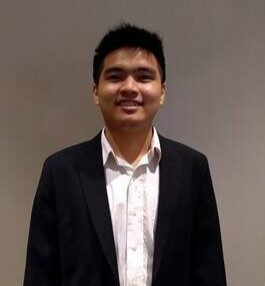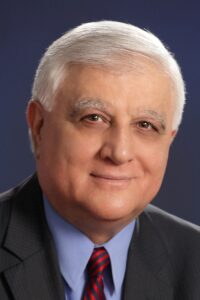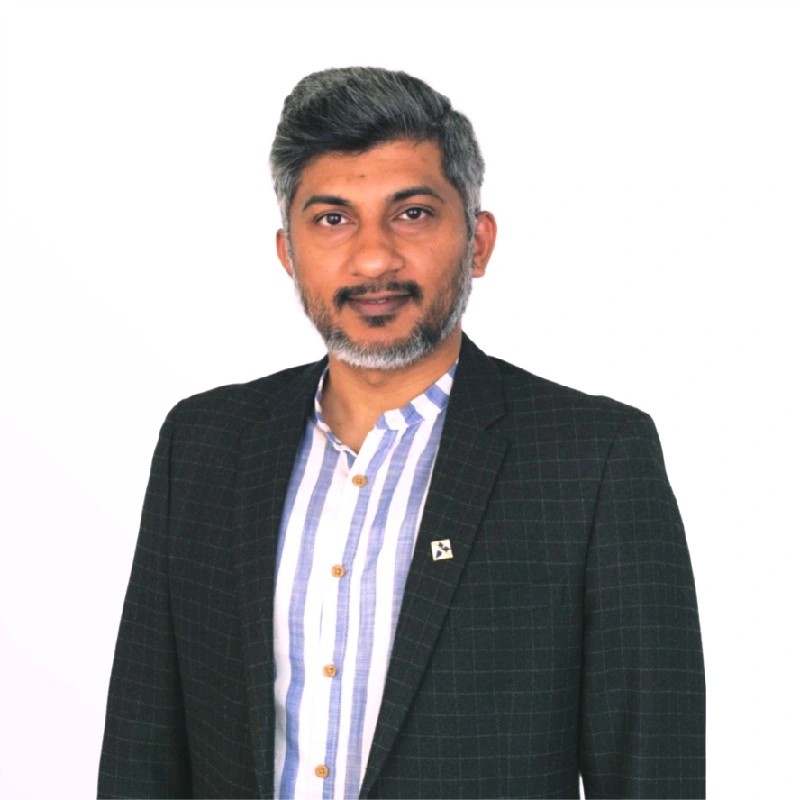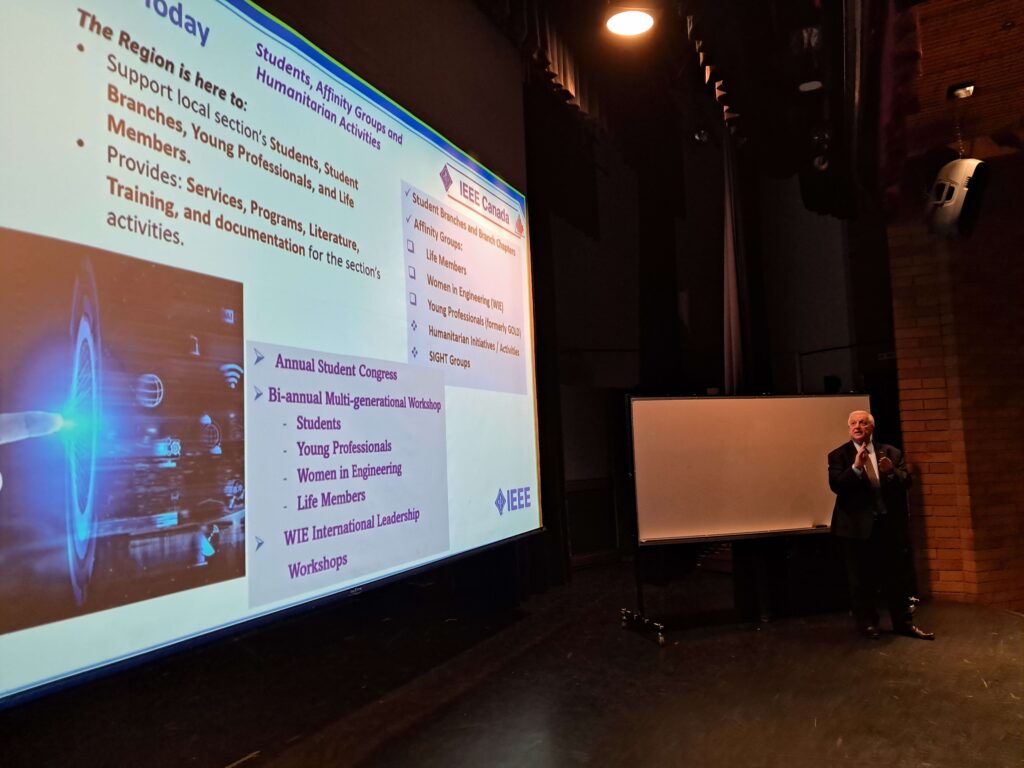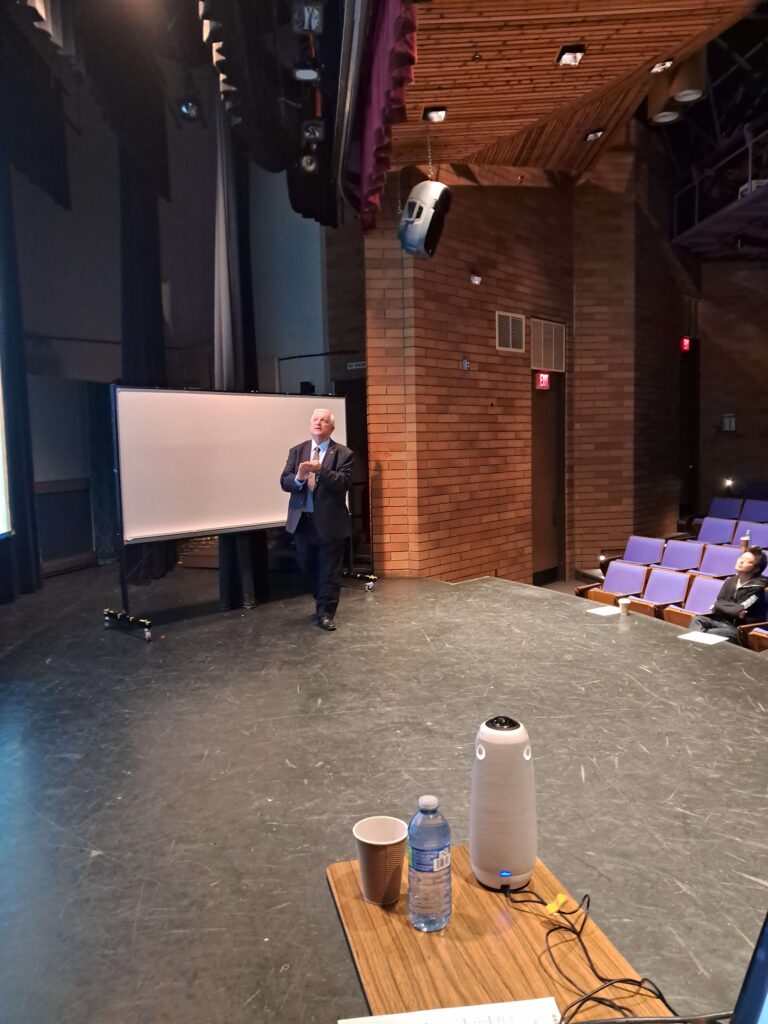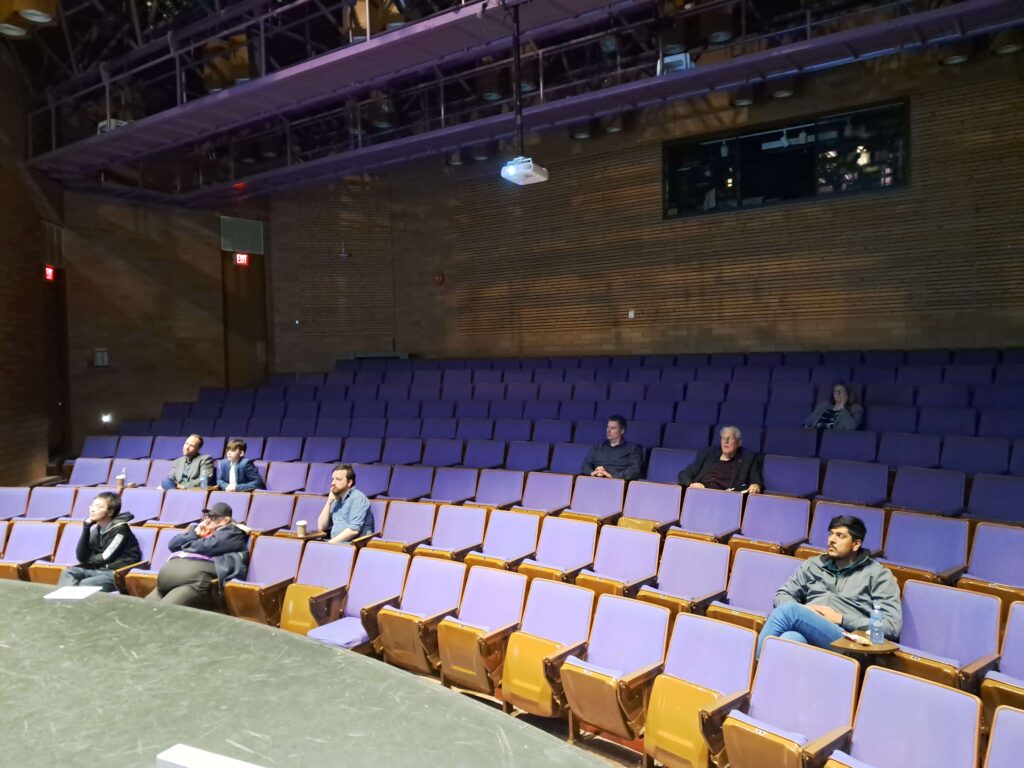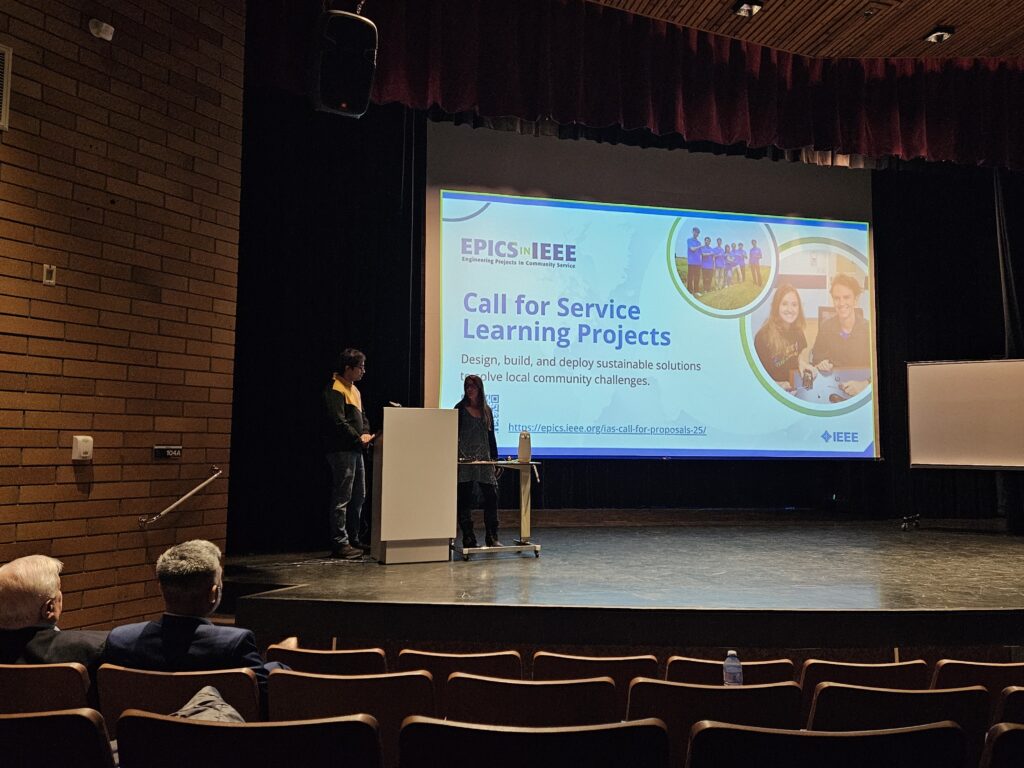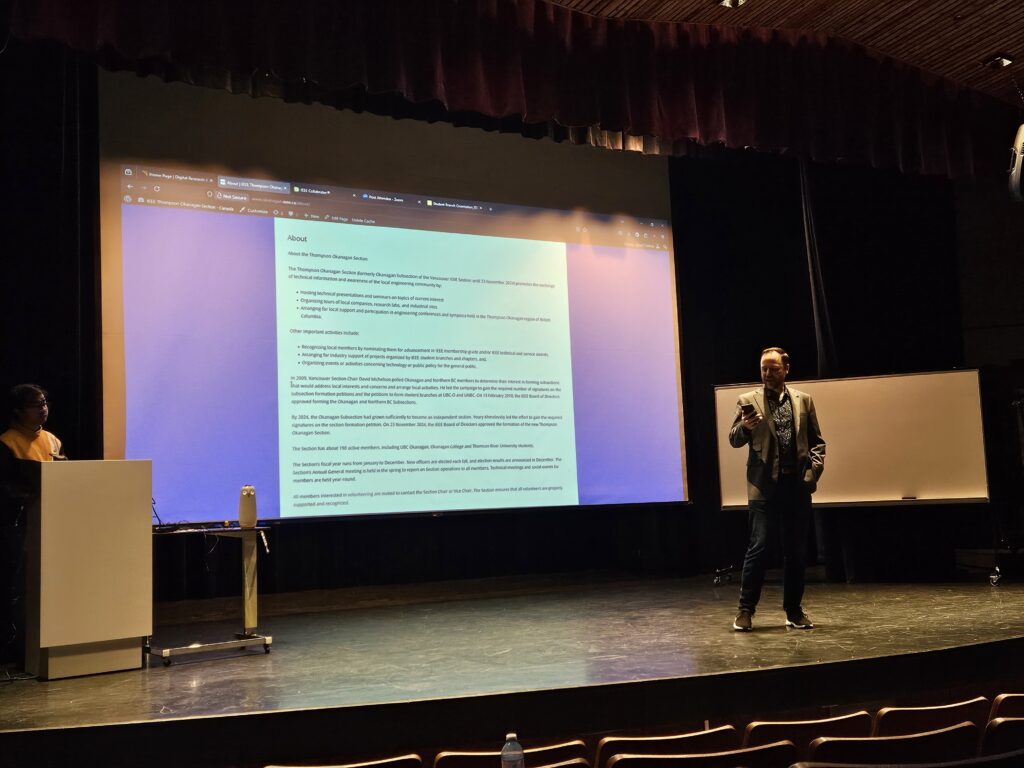Join us for the IEEE Thompson Okanagan Section Emerging Developments in GHz Engineering (EDGE) 2025: IEEE Thompson Okanagan Section MTT-S Chapter Inauguration & Tech Summit.
This event marks a significant milestone for our IEEE community in the Thompson-Okanagan region, and we look forward to celebrating with you.
Emerging Developments in GHz Engineering (EDGE) 2025: IEEE Thompson Okanagan Section MTT-S Chapter Inauguration & Tech Summit
Date: Tuesday, August 12th, 2025
Time: 8:00 am – 4:00 pm
Location: EME 0050, 1137 Alumni Avenue, UBC Okanagan Engineering, Management and Education Building, Kelowna, BC
Register here: https://events.vtools.ieee.org/m/494402.
See more information here: Emerging Developments in GHz Engineering (EDGE) 2025, or please use the URL attached to the image below:
Abstracts:
Emerging Developments in GHz Engineering (EDGE) 2025 marks the official inauguration of the IEEE MTT-S Thompson Okanagan Chapter. This full-day event is dedicated to advancing knowledge and collaboration in microwave, RF, and GHz-frequency engineering. EDGE 2025 brings together academic leaders, industry experts, researchers, and students for an engaging program featuring keynote talks, panel discussions, technical sessions, lab tours, and project demonstrations. The summit aims to establish a strong regional hub for innovation and excellence in GHz technologies, providing valuable networking and learning opportunities.
The day begins with remarks from the executive members of the IEEE Thompson Okanagan Section and interim officers of the MTT-S chapter, followed by the formal inauguration ceremony. Attendees will enjoy a range of activities, including an industry panel, a Distinguished Microwave Lecture, a Young Professionals talk, and a networking lunch. Lab visits, project demonstrations, and a poster session offer hands-on experiences, while invited talks and industry presentations explore advanced microwave topics. The event concludes with student and technical presentations showcasing innovative research by emerging engineers and scientists.
This is an excellent opportunity to connect with IEEE members, learn more about IEEE benefits, and participate in discussions about the section’s future.![]()
Bios:
Prof. Mohammad H. Zarifi (Ph.D., PEng, PRC Tier II, SMIEEE) received the B.Sc., M.Sc., and Ph.D. degrees in electrical and computer engineering from the University of Tabriz, Iran, in 2004, 2006, and 2009, respectively. He is currently an Associate Professor and Tier II Principal’s Research Chair (PRC) in Sensors and Microelectronics at the School of Engineering at the University of British Columbia, and the director of Okanagan MicroElectronics and Gigahertz Applications laboratory (OMEGA Lab), Canada. Prior to joining UBC, Dr.Zarifi was a postdoctoral fellow at the University of Alberta, Canada, from 2013 to 2017. He has authored or co-authored more than 150 papers in peer-reviewed journals and conference proceedings and holds six issued or pending patents. Dr. Zarifi received the CMC-NRC first-place award for industrial collaboration for the innovative microwave sensors in Canada in 2015. Dr. Zarifi’s research focuses on Applied Electromagnetics and Circuits and Systems for Communications and Sensing Applications. Dr. Zarifi is the chair and a member of IEEE MTT-S TC-26 “RFID, Wireless Sensor, and IoT,” as well as a member of IEEE MTT-S TC-4 “Microwave Passive Components and Transmission Line Structures.” He is also a senior member of both the IEEE Microwave Theory and Technology Society and the IEEE Circuits and Systems Society. Additionally, Dr. Zarifi has served as a reviewer for several journals and conferences. Dr. Zarifi has received the Emerging Researcher Award and the Best Teaching Award at the School of Engineering in 2020 and 2021, respectively. He is also an IEEE MTT-S Distinguished Microwave Lecturer for the class of 2024-2027.
Dr. Youry Khmelevsky is a professor and Chair of the Computer Science Department at Okanagan College, an Adjunct Professor at the University of the Fraser Valley and Honorary Research Associate at UBCO. With over 30 years of experience in academia and applied research, his work focuses on systems engineering, software development, cloud computing, data systems, and health informatics. Dr. Khmelevsky has led numerous industry-funded and grant-supported R&D projects across North America, Europe, and the South Pacific.
Thomas R. Jones (GS’14–M’19) received his B.Sc. degree in electrical and computer engineering from the University of Alberta in 2007 and his Ph.D. degree in electrical and computer engineering from the University of Alberta in 2019.
From 2008 to 2013, he worked in industry as a project engineer for Tracer Industries Canada Ltd. In 2013, he joined the Microwave to Millimetre-wave (M2M) group as a research assistant at the University of Alberta. From 2019 to 2021, he was a visiting NSERC Postdoctoral Fellow at Purdue University and a Postdoctoral Fellow at the University of Alberta. He is currently a Senior Research Associate at Purdue University. His research interests include microwave, millimetre-wave, and sub-THz design for high-speed and high-power communication systems and radar, reconfigurable RF front ends and tunable filters, and the microfabrication of on-chip millimetre-wave devices.
Dr. Jones was a recipient of the Queen Elizabeth II Graduate Scholarship, the Alberta Innovates Technology Futures (AITF) Graduate Student Scholarship, the Natural Science and Engineering Research Council (NSERC) Alexander Graham Bell Canada Graduate Scholarship, and the NSERC Postdoctoral Fellowship. He was a recipient of the First Place Excellence in Nanofabrication Award at the 2017 CMC TEXPO Student Design Competition held in Montreal. He was awarded the 2023 Douglas R. Colton Medal for Research Excellence by CMC Microsystems. Dr. Jones served as Finance Chair for the IEEE 2019 Canadian Conference on Electrical and Computer Engineering and served in various other professional roles, including Vice-Chair for the award-winning IEEE Northern Canada Section AP-S/MTT-S Joint Chapter. He is currently serving as the IEEE MTT-S MGA Regional Coordinator for R7 Canada.
Prof. Moez of the University of Alberta: Kambiz Moez (S’01-M’07-SM’12) received his B.Sc. degree in electrical engineering from the University of Tehran, Iran, in 1999, and his M.Sc. and Ph.D. degrees from the University of Waterloo, Waterloo, Ontario, Canada, in 2002 and 2006, respectively. Since January 2007, he has been with the Department of Electrical and Computer Engineering, University of Alberta, Edmonton, AB, Canada, where he is currently a Professor and Associate Dean of Undergraduate Students – ECE. His research interests include the analysis and design of analog, radio frequency, and millimetre-wave CMOS integrated circuits and systems for a variety of applications, including wired/wireless communications and sensors, radio frequency energy harvesting, biomedical imaging, instrumentation, radars, and power electronics. He has authored or co-authored over 110 peer-reviewed journal articles and conference papers in his field of research. Dr. Moez is a Registered Professional Engineer in the province of Alberta. Dr. Moez served as Associate Editor for IEEE Transactions on Circuits and Systems I: Regular Papers from 2021 to 2023. He is currently serving as an Associate Editor for IET Electronics Letters.
Dr. Rashid Mirzavand is a dedicated academic and researcher leading the Intelligent Wireless Technology Group at the University of Alberta. As an Assistant Professor in the Department of Electrical and Computer Engineering, he is passionate about fostering an inclusive environment that promotes equity, diversity, and excellence in research and education. His entrepreneurial spirit has led him to co-found and serve as CTO for three companies specializing in smart sensors, near-field measurement, and wireless power transfer technologies.
Dr. Mirzavand’s research focuses on RF/microwave/mm-wave circuits, sensors, reconfigurable intelligent surfaces, and numerical methods. He is committed to advancing innovation and addressing real-world challenges, with a particular emphasis on promoting diversity and equity in STEM fields. With numerous awards, three granted and nine filed US patents, and over 180 publications to his credit, Dr. Mirzavand is a respected voice in his field. He is a registered member of Alberta’s Association of Professional Engineers and Geoscientists.
For further information, please get in touch with us
vishal.balasubramanian [at] ubc.ca
Youry Khmelevsky (email: tok-section [at] ieee.org) and
Subscribe to the news at NEWS-THOMPSONOKANAGAN@listserv.ieee.org
Refreshments and lunch will be provided








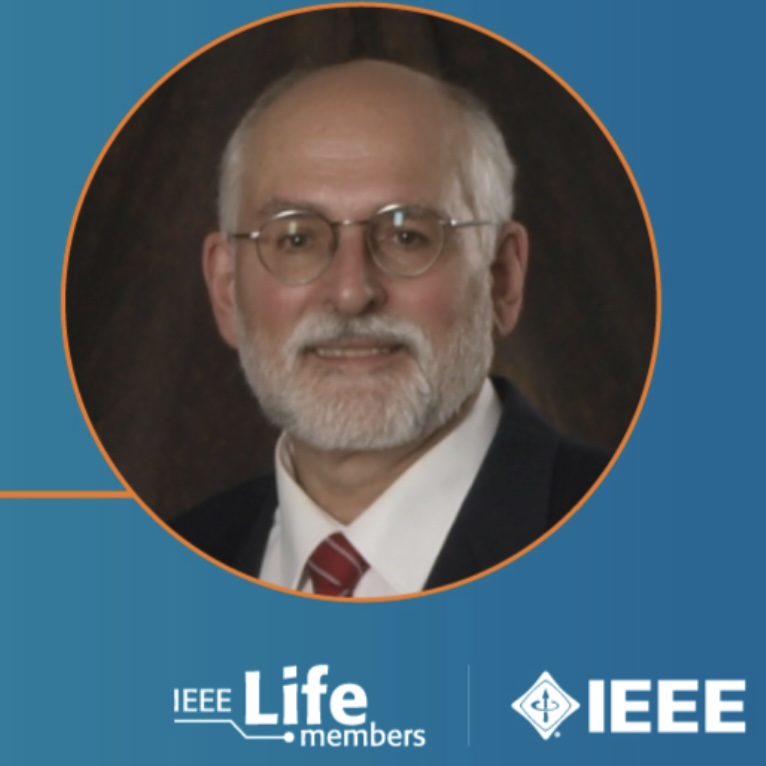

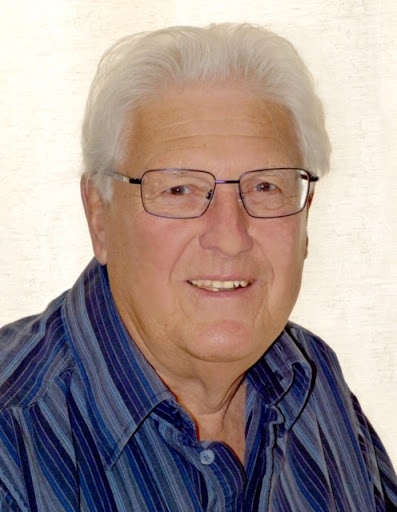
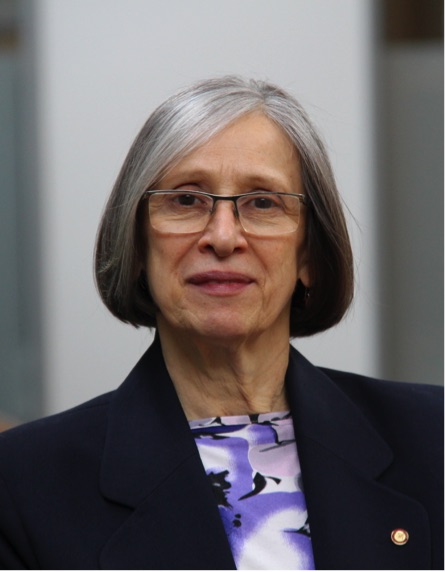


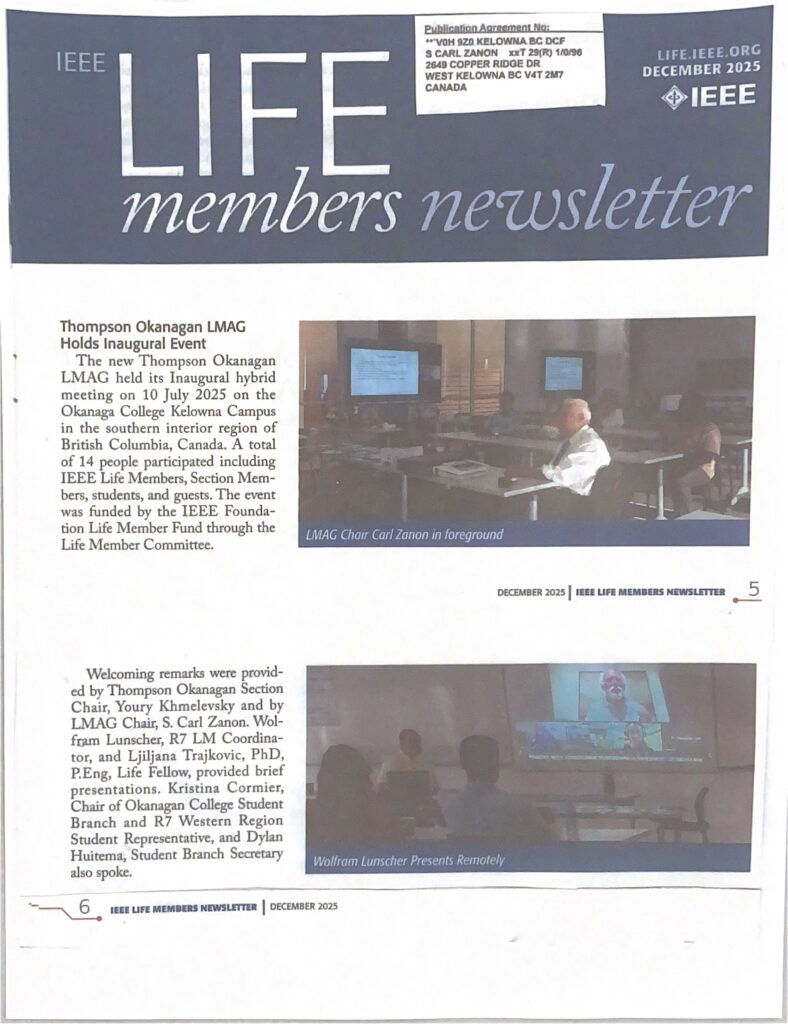
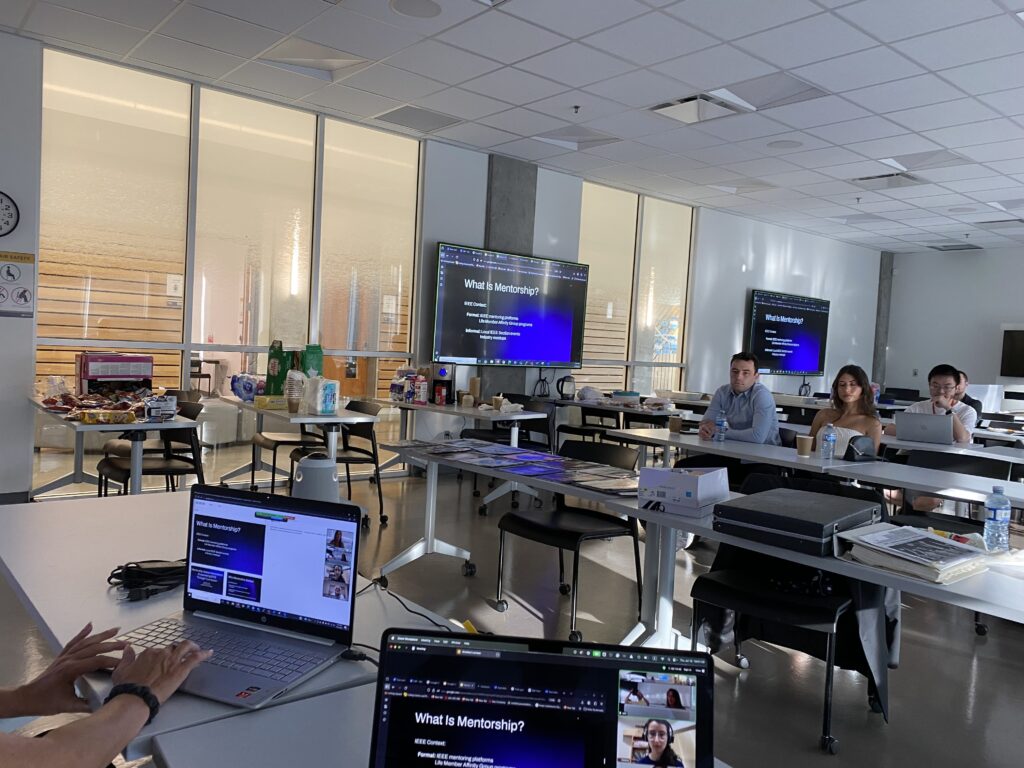
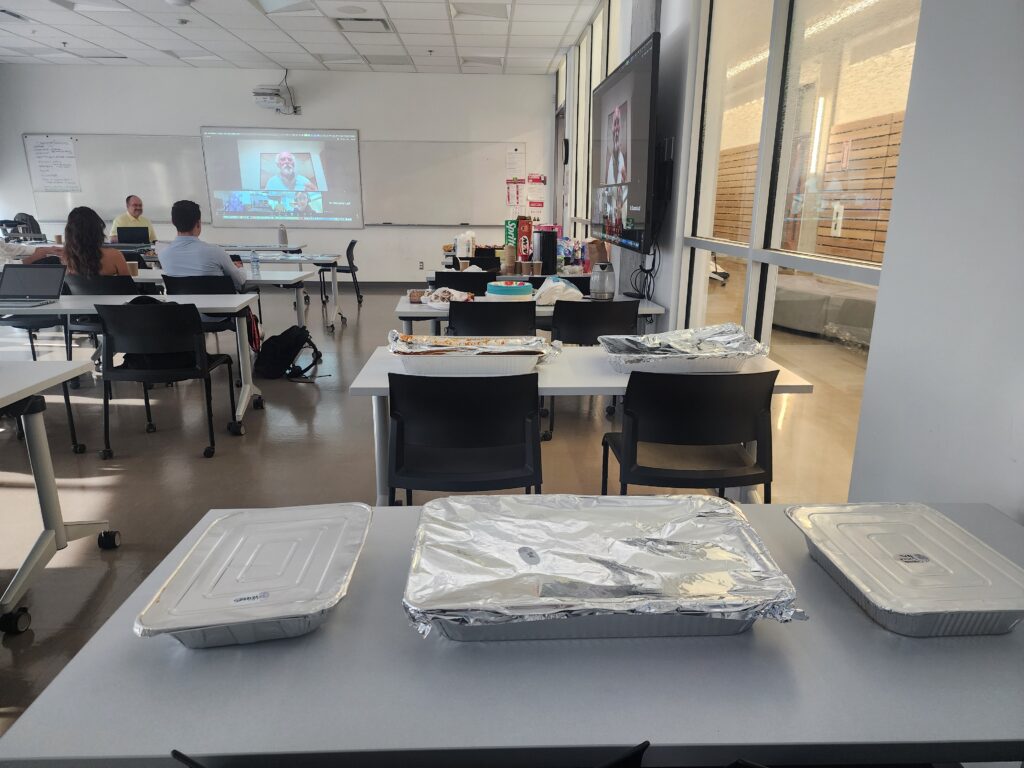

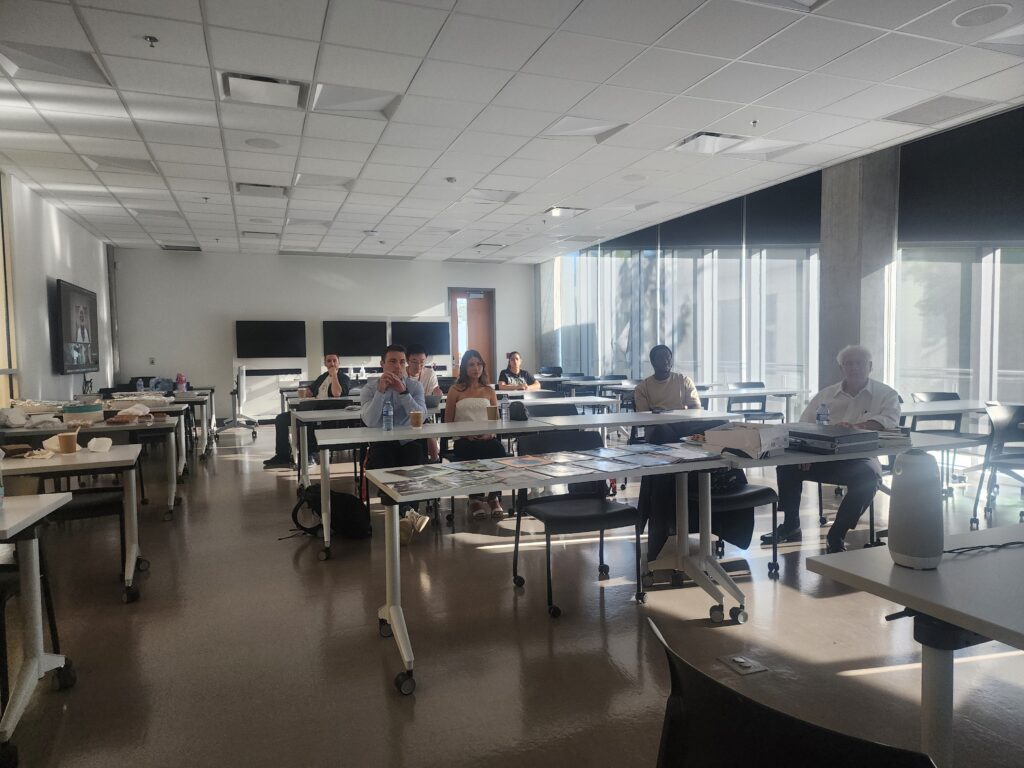
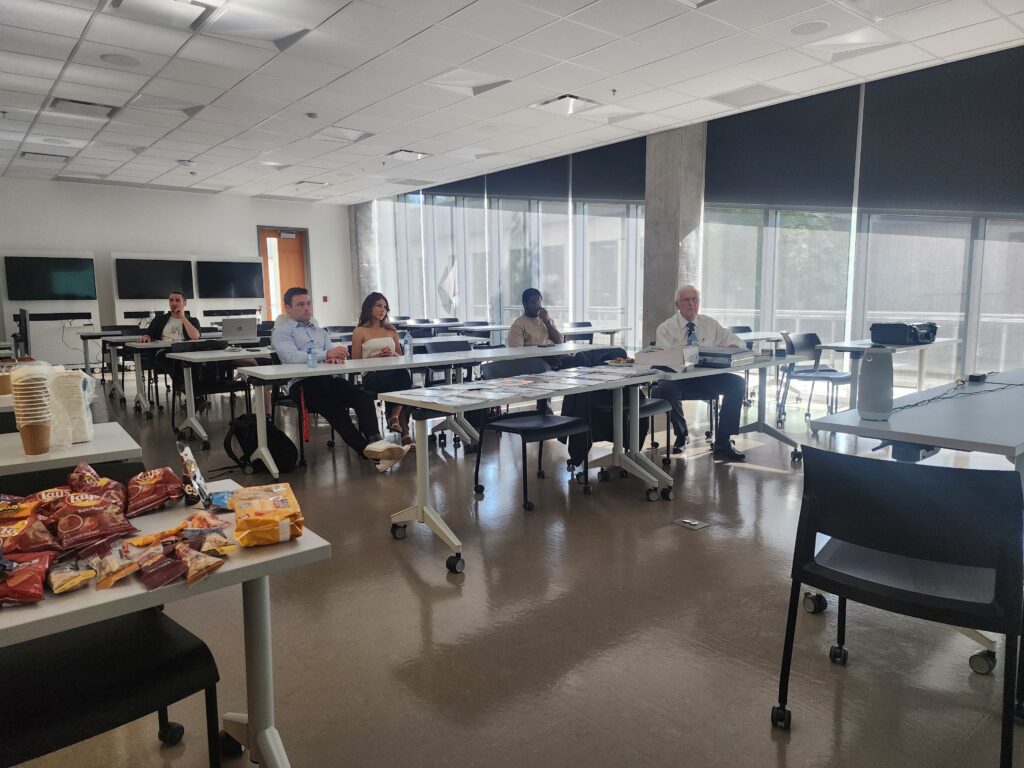

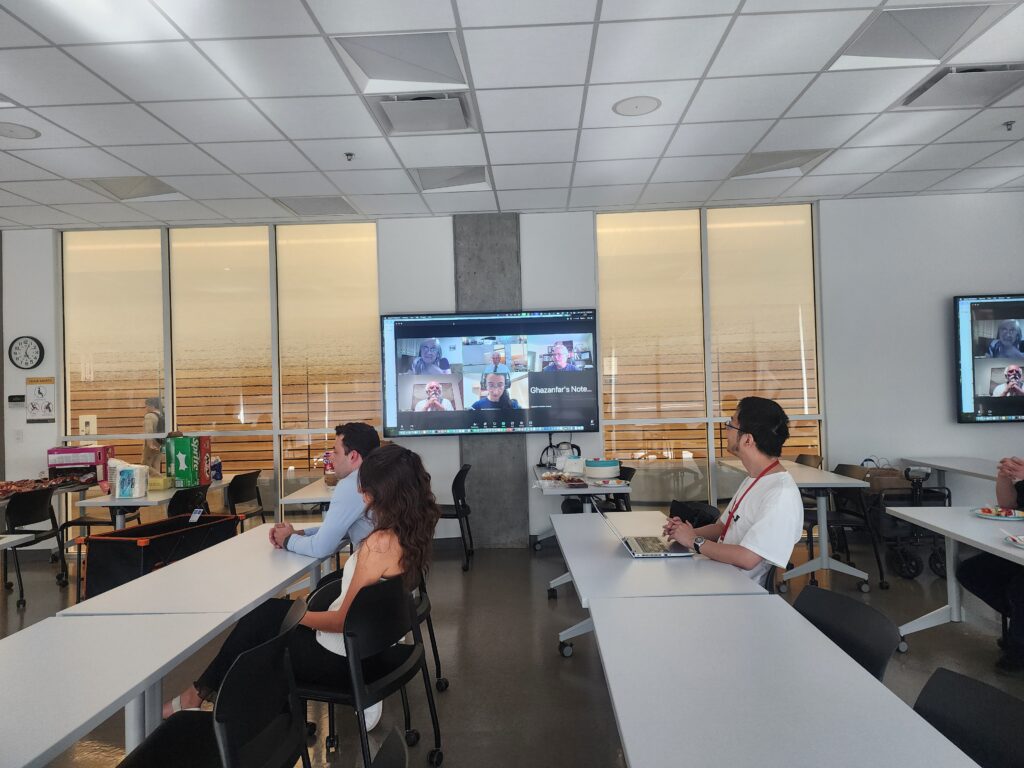






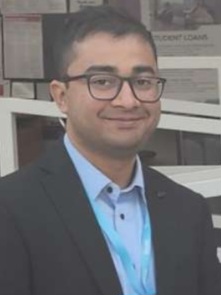 Ajitesh Parihar, Computer Science Department
Ajitesh Parihar, Computer Science Department
